-
Recent Posts
Categories
- American Heart Association
- Cancer
- Cardiomyopathy
- Dan Smith
- Donate Life
- fundraiser
- Gall Bladder
- Gift of Life
- Heart Failure
- Heart Transplant
- Ironman
- Kyle Garlett
- Lake Placid
- Leukemia & Lymphoma Society
- Nation's Triathlon
- Non-Hodgkin's Lymphoma
- Philadelphia Marathon
- Souderton Independent
- St. Anthony's Triathlon
- Team In Training
- Team Recycledman
- Tin Men
Twitter Updates
Tweets by FitzDb
Lansdale Reporter Article
Heart transplant recipient races on

POSTED: 12/12/13, 5:26 PM EST | UPDATED: 8 HRS AGO

When Derek Fitzgerald woke up from his heart transplant surgery, he felt great — thanks to the painkillers. Something was amiss, though.
“I heard this thumping that I couldn’t place,” he said. “Then I realized it was my heartbeat. I’d forgotten what it was like to have a heartbeat.”
That’s because for seven years, from 2004 to 2011, Fitzgerald, of Harleysville, was living with heart failure.
To understand how Fitzgerald got to this point — lying in a recovery room in the hospital feeling his heartbeat for the first time in seven years — you have to go back to 2003.
“Throughout my 20s, I was trying to start my own business. I was not taking care of myself and eating horribly,” he said. “I went to see a doctor because I was feeling poorly.”
The doctors discovered a large stomach tumor, which had to be removed. After that, Fitzgerald was diagnosed with non-Hodgkins lymphoma, a cancer of the lymph tissue.
He entered rehabilitation, a three-month process that involved chemotherapy and a drug called Adriamycin.
“Doctors warn you that this drug can cause heart troubles if it gets out of your main vein, where it enters your body,” Fitzgerald explained. “But they said it was a slight chance, causing heart failure in only about 2 percent of people who use it.”
By 2004, Fitzgerald’s cancer was in remission, but the real battle was just beginning.
“I went to the doctor because I was having breathing trouble,” he said. “The doctor told me I had heart failure, caused by Adriamycin.”
That’s when Fitzgerald learned about something called ejection fraction, which measures how well the heart is pumping blood. The standard ejection fraction is between 55 and 65 percent. When Fitzgerald entered the doctor’s office, he was at 18 percent. The requirement for getting on the heart transplant list is 17 percent.
For the next seven years, Fitzgerald lived with heart failure and a steadily declining health. Although he continued to work, he had dizzy spells and extreme fatigue.
“I always describe heart failure as having two 10-pound weights, one hanging off of each lung,” he said. “What I didn’t realize is that they were getting heavier. I started wondering how much a body could take. I forgot what it felt like to be healthy, but I didn’t even realize it because this was my new normal.”
Finally, in August of 2010, Fitzgerald was put on the heart transplant list. The average wait time is four months, which is exactly how long he had to wait.
“My doctors told me that my health was going to get a lot worse. My other organs were overcompensating for my heart, but that could only go on so long,” Fitzgerald explained. “(The doctors) said it was going to be the equivalent of falling off a cliff, but they would catch me. They said, ‘Derek, we won’t let you die.’”
And sure enough, around Thanksgiving in 2010, Fitzgerald picked up pneumonia. When he collapsed at a doctor’s appointment Dec. 28, he was admitted to the hospital, where he waited for his heart transplant.
On Jan. 3, the doctors had found Fitzgerald a heart.
“Then my doctor asked me if I wanted to donate my old heart to science,” he said. “I told him, ‘Well, I wasn’t going to do anything with it.’”
After a successful operation, Fitzgerald woke up with a new heart and a new heartbeat.
“It was like plugging fresh batteries in a dead remote,” he said. “I felt amazing.”
He embarked on a long road to recovery, one that began by literally crawling from one end of the room to the other, then walking, and then — slowly — jogging.
“I knew I had been given a second chance,” Fitzgerald said. “I wanted to honor my donor. The only thing I know about my donor is that on the worst day, the last day of their life, they decided to save the life of a stranger. I took that seriously. I know this new heart is not a promise; it’s a chance.”
To honor his donor, Fitzgerald began running. In September of 2011, he completed his fist 5K. Two months later, he ran his first half-marathon.
“I finally realized just how sick I’d gotten,” he said. “And I decided that running would be how I could repay my donor — that every day, I would be just a little bit better than the day before.”
It wasn’t long before running wasn’t enough for Fitzgerald. In April of 2012, he competed in his first triathlon, swimming 0.97 miles, biking 25 miles and running 6 miles.
He competed in a total of 17 endurance events in 2012, including the full Philadelphia marathon and a half Iron Man.
He decided in January of 2013 to do a full Iron Man, an intense endurance event that includes a 2.4-mile swim, 112-mile bike route and 26.2-mile run. Fitzgerald completed the event in 16 hours and 14 minutes.
After successfully finishing his first Iron Man, Fitzgerald felt compelled to do more. With another heart transplant athlete, he created the five-man Tin Man team. Together they competed in another Iron Man event in Arizona. This time, Fitzgerald finished in 15 hours and 29 minutes, keeping his promise to his donor to get a little bit better every time.
“It’s been such a drastic, dynamic change in my life,” Fitzgerald said about his heart transplant. “I get out and feel great, and I feel like I get to show what is possible through organ donorship. I hope people see (the Tin Men) and consider becoming an organ donor. Eighteen people die every day waiting for an organ donor.
“I do the best I can with what I’ve been given. I consider myself very fortunate for everything I’ve been given, and I always want to give recognition to my donor’s legacy.”
After years of illness, it seems appropriate for Fitzgerald’s fortunes to swing the other way. Two years ago, in January, he got a new heart. This January, he’ll get a new member of his family.
“Everything I’ve done pales in comparison to my wife telling me she’s pregnant,” Fitzgerald said. “We have been together since high school and she is my rock. The reason I fought so hard has been for her. And we have this incredible gift now — a little girl.”
Fitzgerald’s wife, LeeAnn, is due Jan. 14.
Follow Erin Weaver on Twitter @ByErinWeaver.
Philadelphia Inquirer Article
IRON TIN MAN
Michael Vitez, Inquirer Staff Writer
Derek Fitzgerald played baritone horn in the marching band at North Penn High School, and his father ran the music program at Bensalem High.
Visiting his father one day, Derek “saw the girls in color guard in spandex.” LeeAnn in particular looked very cute.
Derek visited a lot more often, soon dating LeeAnn. They attended Indiana University of Pennsylvania, got married.
But then, Derek, at age 30, got cancer in 2003.
He survived, but chemotherapy ruined his heart. In 2011, too weak to lift his head off a pillow, he got a heart transplant.
Two weeks ago, Derek Fitzgerald, now 40, of Harleysville, attempted his second Ironman Triathlon. He did not go alone to the Arizona desert. He entered with four other heart transplant recipients, who call themselves Team Tin Men.
One was Dan Smith, 48, of Northeast Philadelphia.
“Like Tin Man in The Wizard of Oz, we were waiting for the gift of a new heart,” Smith said. “And once we got that, it enabled us to live a whole and full life.”
The five wanted to honor their donors, show the power of organ donation, shatter any sense of limitation. So they entered an Ironman – a 2.4-mile swim, 112 miles on a bike, then a 26.2-mile run.
“My wife,” Smith said, “thinks we should be referred to as the Scarecrow, because we’re all insane and have no brain if we want to do races like this.”
Heart failure
After college, Derek Fitzgerald started a business creating iPad applications for health-care companies. He was traveling the world meeting with oncologists when he got cancer.
Chemotherapy cured him, but one of the drugs, Adriamycin, was known to cause heart damage in a small percentage of cases. Three months later, he was in heart failure.
His company had just expanded into iPad apps for cardiovascular drugs. He told his colleagues: “No more expansion. My health can’t take it.”
Fitzgerald lived with heart failure for seven years. At first he felt like a 10-pound weight hung from each lung, and the weight grew heavier until he couldn’t get out of bed, even lift a hand.
He couldn’t sleep lying down or his lungs would fill with fluid.
In January 2011, he got a new heart.
He woke up in a hospital bed hearing “this annoying thud.” He realized, “I’d forgotten what it felt like to have a heart beat.”
“It was like putting fresh batteries in an old, dead remote,” he added. “Suddenly, everything worked. I knew that day I owed a debt that I can never repay to someone that I’ll never know. I was going to make the most with whatever time I had left.”
He has never considered himself athletic. But he started crawling, literally, then walking, then running a few seconds, then a few minutes.
By spring, their newly finished basement had a treadmill, weight machine, and recumbent bike.
LeeAnn asked, “You’re not going to become one of those guys, are you? One of those guys who gets a second chance and starts running marathons?”
“No way,” he said. “I don’t have the short shorts.”
He did become one of those guys.
“Every time I exercised, it hurt,” he said. “But it was so satisfying and gratifying.”
Caring for her husband
LeeAnn cared for her husband through his cancer, then his heart failure.
“When you love someone that much, you find a strength that you didn’t know you had,” she said.
“The lowest wasn’t really a point. It was that constant pit in my stomach that always reminded me that I was likely going to outlive Derek, and we couldn’t have children, and I would die alone.
“I was just looking at this abyss of loneliness. That was very difficult. Having those conversations: ‘Do you want to be cremated or be buried? And what do you want to be buried in?’ ”
Then, the new heart.
“At this point, I think he’s going to outlive me,” LeeAnn said. “We both kind of became hermits while he was sick. We didn’t have energy. Never went out and did anything. As he aged and essentially became an old man, I aged with him.
“But then he was young again, and I was still an old lady. He made me feel like a cougar.”
Her husband inspired her, as he has so many others, to begin walking, running, and biking. This year, they rode 50 miles around Lake Tahoe.
Derek Fitzgerald learned to swim and bought a bike. He joined Team in Training, sponsored by the Leukemia and Lymphoma Society. He had suffered from non-Hodgkins lymphoma.
He worked his way up to an Ironman because he wanted to celebrate the “second or third or fourth chance” in life that he’d been given, and he “wanted to have an experience that is the furthest thing” from where he’d been.
When the pain of biking or running was intense, he thought of when he couldn’t lift his head, or when he crawled across his bedroom floor.
LeeAnn was with him at his first Ironman this summer at Lake Placid, N.Y. She put the medal around his neck – a moment neither will forget.
“If you’re willing to push your boundaries,” he said, “then a whole new world is out there that you never dreamed you can participate in.”
Dan Smith, another Tin Man, had open heart surgery as a boy, in 1967, when it was still radical. He was never allowed to do sports. His repaired heart lasted until 2005, when he had a transplant.
As he recovered in his hospital bed, he watched reruns of the Hawaiian Ironman, the original and most renowned Ironman event. He thought that if veterans with one leg and cancer survivors and people with all sorts of amazing stories can do an Ironman, he could at least walk a 5K, maybe jog, and even work up to a smaller triathlon.
He did one and finished second to last. But he finished. He then ran five half-marathons. Smith had his transplant at the Hospital of the University of Pennsylvania, as did Derek Fitzgerald, who called Smith with questions after receiving his new heart.
Smith put Fitzgerald in touch with another heart transplant recipient and cancer survivor, Kyle Garlett, 42, of California, who had entered two Ironmans but had yet to finish one.
Garlett and Fitzgerald formed Team Tin Men and Tin Men Endurance Racing, and invited Smith and two others to join. All five trained for the Ironman Nov. 17 in Tempe, Ariz.
Garlett had hurt his back in a bicycle accident weeks earlier, and decided at the starting line to withdraw.
Smith jumped into a lake to start the swim, the first leg, and another man jumped on top of him just as he was coming up for a breath, knocking him back under. Smith was dizzy, disoriented, and cold, even with a wet suit. The water was 62 degrees.
When the dizziness didn’t pass, he got out and cheered on teammates.
He will try again.
“I grew up with three sisters,” Smith said, “and after Ironman Arizona, I feel like I have four brothers.”
Justin Feria, 30, of California, was stopped at the 20-mile mark of the run. The race starts at 7 a.m. and must end by midnight. He was out of time.
Trevor Kecskes, 24, of Colorado Springs, Colo., 9 when he had his transplant, finished in 16 hours, 45 minutes – at 11:45 p.m.
Derek Fitzgerald finished in 15 hours, 29 minutes. He is the first cancer survivor and heart transplant recipient to finish one Ironman, much less two.
His swim time was 1:48; bike, 6:50; and marathon 6:31.
He said that his doctors support him, and that he knows his limits.
“Going through 10 years of cancer, heart failure, and a transplant recalibrated my pain threshold and what I’m able to endure,” he said. “Ironman at its worst can be painful and tough, but it’s a conscious choice – it’s a healthy pain. A recreational activity will never compare with a fight for your life.”
Next up, parenthood
In six weeks, Fitzgerald will begin perhaps life’s greatest endurance event – parenthood.
When Derek received the new heart, he and LeeAnn agreed to stop trying to have a baby. “It was selfish to ask for anything more,” she said. “We decided to give up and be happy with what he was given.”
And she got pregnant.
The baby is due Jan. 14.
Read more at http://www.philly.com/philly/news/20131201_Battling_back_-_area_man_is_going_the_distance.html#SzpfEMhTWuKJOaGv.99
Ironman.com Article
Tin Man Soars to Second Chances in Lake Placid, Arizona
IRONMAN recently welcomed its first heart transplant recipient across the finish line. And he’s just getting started.
by Lisa Dolbear
Nobody knows just how much heart it takes to complete an IRONMAN better than Derek Fitzgerald. At 40 years old, Fitzgerald became the first American heart transplant recipient to complete a 140.6-mile race at IRONMAN Lake Placid last month (16:14:38 hours).
Long before the Harleysville, PA resident began fighting for the IRONMAN finish line, he was fighting for his health. Fitzgerald spent a decade battling cancer, survived heart failure and received a heart transplant after being diagnosed with non-Hodgkin’s lymphoma at the age of 30 (2003). Fitzgerald says he was not athletic before his health took a turn for the worst. He didn’t even know how his friends found out about the 5K races they competed in on the weekends. “It was like some kind of weird subculture that I found completely fascinating and foreign,” he says.
Little did he know, he’d later become part of that culture in a big way. His debut as an athlete started three months after his transplant—on the rehab treadmill. At first, he walked. Before long, walking gave way to a slow shuffle, which turned into a a light run. He felt his first runner’s high during one of these sessions. “All the forgotten memories of what it felt like to be healthy came back to me, and all I wanted to do was feel more,” he recalls.
While at the University of Pennsylvania transplant center, Fitzgerald’s mentor, Dan Smith, told him about cancer survivor and transplant recipient Kyle Garlett, who had attempted to complete the IRONMAN World Championship twice. “He saw a lot of similarities in our stories,” Fitzgerald says. It didn’t take long for him to contact Garlett on Facebook.
Fitzgerald did his first 5K in September 2011, and eventually moved up to the half marathon with Team in Training in November 2011. He signed up for the St. Anthony’s triathlon in 2012. “It’s safe to say I caught the bug,” he says. He enlisted the help of a coach and completed IRONMAN 70.3 Florida that same year, where he and Kyle hatched the idea for the Tin Men Endurance Team, comprised exclusively of heart transplant recipients, or as they say it, “lucky second chancers.”
Fitzgerald sees IRONMAN as a way to honor his donor and celebrate a second chance at life. The donor process is anonymous, but he still feels a respect for his gift-giver. “I know all that I need to know about my donor and his or her family based on their decision to save my life in the darkest moments of their own lives. They are heroes, and I try to live a life that’s worthy of their gift,” he explains.
This November, Fitzgerald hopes to make history by crossing the finish line at IRONMAN Arizona with four other heart transplant recipients—the Tin Men. “Some people just don’t realize what they can do. They’ve been told what they can expect from their lives and never break free from those limitations,” Fitzgerald says. His hope is that people will take a cue from the Tin Men to overcome their own obstacles and find success. “All of us came within moments of death,” he says, “but we worked our butts off and became triathletes.”
For someone who’s had every muscle sliced from the base of his neck to below the waistline, getting back on track with his body has not been easy. “There’s no magic pill to overcome all of that damage, just a long-term commitment to hard, sometimes painful work,” he says. When things get bad, Fitzgerald closes his eyes and remembers the man he was before the M-dot: “I think about how long it took me to lift my head on my own, to learn to walk again, or the seven years I spent wondering if I would wake up from each night’s sleep.”
For Fitzgerald, the finish line in Lake Placid was just the beginning of a high he’s still on. His wife is expecting their first child this January and greeted him in the Olympic Oval with open arms and a finishing medal, a moment of pure happiness and a reminder of how precious each day really is. Being alive and active is a gift that he plans to carry through the coming years, both on and off the race course.
Lisa Dolbear is a three-time IRONMAN and USAT Level 1 coach. Visit her blog on mental skills training at trimojo.com
Originally from: http://www.ironman.com/triathlon-news/articles/2013/08/derek-fitzgerald.aspx#ixzz2c7tfI3rj
Posted in Press, Tin Men Endurance Racing
Tagged Cancer, Dan Smith, Heart Failure, Heart Transplant, Ironman, Kyle Garlett, Lake Placid, Team In Training
Leave a comment
Recycling Iron
Shared from Matthew Wokulich’s Montremblog:
While this whole Ironman endeavor is a Bucket List item for me and has been a memorable experience at that, the fact remains that I’m nothing special. Approximately 50,000 athletes completed Ironman distance triathlons in 2010 (according to some random source on the internet). I suspect that number is closer to 70,000 this year as the sport grows in popularity. While undoubtedly hard, I’m an experienced runner and am a prime age for endurance athletes. In other words, these are the best conditions for someone like me to partake in this. And it’s also why Men 35-39 is one of the best represented age groups at these events.
There are others attempting this with less than favorable conditions.
I first met Derek Fitzgerald during a jog in late summer 2011. I was a brand new coach to Team In Training, which is a subsidiary to the Leukemia and Lymphoma Society, a non-profit tasked with raising money to combat blood-born cancers (i.e., leukemia and lymphoma for the dense). It was the first practice of the season, and we had dozens of folks that were training for a half or full marathons. As the newbie coach, I was really just putting names to faces and trying to make sure no one got lost. Then, as I jogged alongside, Derek told me his story.
When Derek was 30, he was diagnosed with non-Hodgkin’s lymphoma which manifested in the form of a grapefruit-sized tumor (the gold standard for fruit-to-tumor comparisons) in his stomach, which had to be removed. Chemotherapy, in all of its horrific glory, ensued. This included all of those familiar side effects — fatigue, hair loss, weight loss — in addition to the more exotic. Only a few months after finishing chemo and having been declared in remission from cancer, he learned that his heart had been irreparably damaged by the chemotherapy drugs. WTF, am I right? Can’t a guy catch a break?
Of course, his weakened heart wasn’t weak enough to immediately qualify for a heart transplant, so he was fitted with a pacemaker and lived for five years in this condition. Hey, my heart is delivering about 30% of the oxygen as a normal heart. No biggie.
Eventually but not surprisingly, his condition worsened and the need for the transplant became imperative. Thankfully, In January 2011, a donor heart became available, and (obviously) the transplant was a success.
“Hold up, hold up, hold up…January 2011. You got a new heart in January 2011?”
– Matt Wokulich (August 2011)
That’s right. My first encounter with Derek was a mere seven months after his transplant. And he was training for a half marathon. I couldn’t tell if I should treat him like a lunatic or a…a…cancer patient. But there he was, plodding along like everyone else. The Team coaching staff held our collective breath as Derek crossed the finish line at the Philadelphia half marathon in November 2011. Over the next two years, I’ve watched Derek go from a half marathoner to a triathlete to a marathoner to a half Ironman. Actually, that doesn’t adequately capture the level of activity this guy has kept. In the last year, his race schedule has been peppered with triathlons, century bike rides, half and full marathons. Turns out, he was more lunatic than anything else.
On top of that crazy training schedule, Derek’s social calendar has become packed. He has become a poster child for Team In Training, the American Heart Association, and a slew of other organizations. He’s even become somewhat of a local celebrity with a bunch of (more skillfully written) articles about him here, here and here. Or, if you don’t like reading (and if you don’t, what the hell are you doing on my blog?) you can watch a video of his story or even listen to a radio spot he did on Preston and Steve (a local Philly radio show). Seriously, if you Google “‘Derek Fitzgerald’ and ‘heart transplant’” you get over 1200 hits. Of course, if you Google “‘Derek Fitzgerald’ and ‘grumpy cat’” you get over two hundred hits. So I don’t really know what kind of conclusion I’m trying to draw here.
Why do I even bother to bring any of this up? And why now? Because this weekend, Derek will be attempting to complete Ironman Lake Placid. This cancer surviving, heart transplant recipient will attempt the 2.4 mile swim / 112 mile bike / 26.2 mile run madness that I have been training for since January. In this instance, he truly is an original, because I’m guessing there won’t be too many of those gathering at the starting line in Lake Placid this Sunday.
From my perspective, I don’t see Derek the Survivor. I see my friend. Just a genuinely nice guy who does a lot of the same stuff that I do, shares a comedic sensibility, and will join me for a run or a ride. Spend enough time with him though, and you’re reminded of what Derek has been through. If you’re around for a wardrobe change after a workout, you’ll see the gnarly scar from his transplant surgery. All activities must stop at the precise moment he needs to take his medication. Or maybe you’ll spot any of the Recycled Man icons on his person. At those times, you’re reminded that he’s not quite like the rest of us.
And if you talk to him, you start to understand that his motivation is pretty simple. He’s been given a third chance at life and he’s got an obligation to a nameless heart donor who saved his life. I cannot think of many things that would drive me more effectively than that.
So on Sunday, I’m going to be glued to my computer or phone all day, catching updates wherever I can get them. I will be one of many cheering for Derek, and I look forward to the day that I can welcome him back as an Ironman.
Final note: If you find Derek’s story compelling (and why wouldn’t you?), please consider donating to LLS. Or better yet, sign up for Team in Training and get your run/ride/swim on (I know a guy).
Posted in Derek, Press, Tin Men Endurance Racing
Leave a comment
Phillies Invite Public To Step Up to the Plate For Ashburn Heart Fundraiser
By Mike DeNardo
PHILADELPHIA (CBS) — The Phillies haven’t shown much power so far this season, so maybe you’re watching and saying, “Even I could hit one out of Citizens Bank Park!”
Well, now you have your chance — for charity.
The 16th annual “Richie Ashburn Home Runs for Heart” event gives you the opportunity to stand at home plate and swing for the fences.
Proceeds benefit the American Heart Association, a charity dear to Richie Ashburn’s son Rich.
“I’ve had people say to me that they entered into this just to get the chance to hit at Citizens Bank, and then they found out what it really was about,” the young Ashburn tells KYW Newsradio.
And what’s it’s about is raising money for local cardiovascular disease and stroke research.
Forty-year-old Derek Fitzgerald of Harleysville, Pa., got a new heart two years ago. “You lay in that bed and you’re waiting for a heart transplant, and you’re wondering if you’re going to wake up the next day,” he recalls.
This year’s Home Runs for heart is May 6th and 7th. It costs $400 per individual or $1,500 for a foursome to take part.
Posted in Uncategorized
Leave a comment

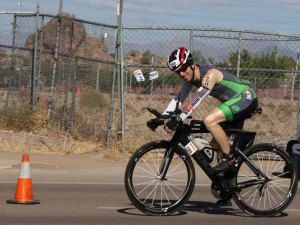
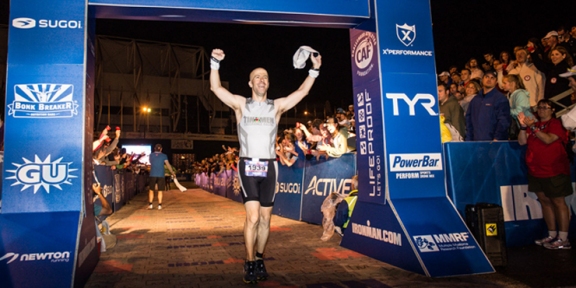
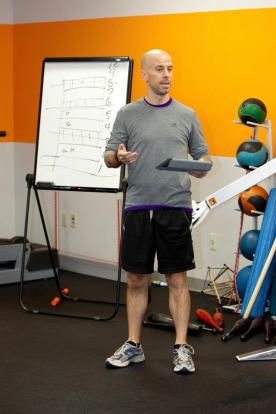
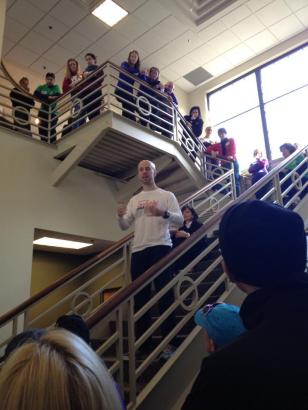
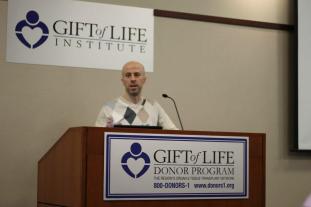
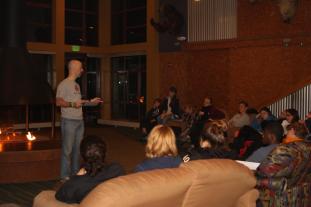
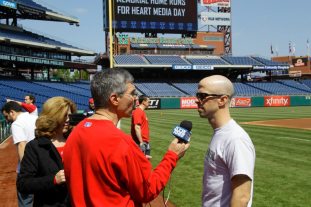
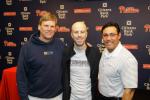
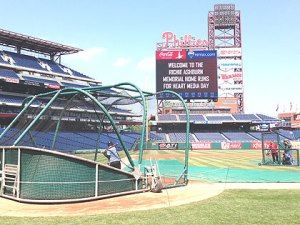
You must be logged in to post a comment.